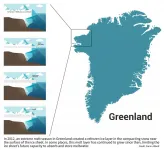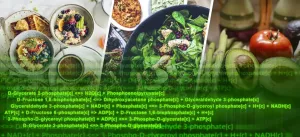New biomaterial regrows blood vessels and bone, RCSI research
2021-04-20
(Press-News.org) Scientists have developed a new biomaterial that regrows blood vessels and bone, potentially providing a single-stage approach when repairing large bone defects.
The study, led by researchers from RCSI University of Medicine and Health Sciences and SFI AMBER Centre, is published in the Journal of Controlled Release.
Previous RCSI-led research had found that activating a mechanosensitive gene, called placental growth factor (PGF), at different doses promoted bone regeneration and grew new blood vessels. Using this knowledge, the researchers developed a biomaterial that delivers PGF at different concentrations.
Inspired by the natural way in which bone defects regenerate, the biomaterial first releases a high dose of PGF, promoting blood vessel growth, and follows it with a more sustained lower dose, which promotes bone regeneration. When tested in a pre-clinical model, the biomaterial successfully repaired large bone defects while also regrowing blood vessels.
Current biomaterials that promote both blood vessel and bone growth typically require using more than one therapeutic drug, which means designing a more complex system that faces more challenges. Furthermore, drugs that have been approved for use in the clinic have been controversially associated with dangerous side-effects, highlighting the need for new strategies.
"More testing is needed before we can begin clinical trials, but if proven successful, this biomaterial could benefit patients when repairing bone defects by providing an alternative to current systems," said Professor Fergal O'Brien, the study's principal investigator and RCSI's Director of Research and Innovation.
"In addition to repairing bone defects, our approach to regenerative medicine executed in the study provides a new framework for evaluating regenerative biomaterials for other tissue engineering applications. We are now applying this concept of 'mechanobiology informed regenerative medicine' to identify new therapeutics in other areas, including cartilage and spinal cord repair."
The biomaterial was developed by researchers from the Tissue Engineering Research Group (TERG) based at RCSI and the SFI AMBER Centre. Their work was supported by the Irish Research Council, the EU BlueHuman Interreg Atlantic Area Project, the European Community's Horizon 2020 research and innovation programme under European Research Council Advanced Grant agreement n° 788753 (ReCaP) and the Health Research Board of Ireland under the Health Research Awards - Patient-Oriented Research Scheme.
"By using a mechanobiology-informed approach, we were able to identify a promising new therapeutic candidate for bone repair and also determine the optimal concentrations required to promote both angiogenesis and osteogenesis within a single biomaterial," said Dr Eamon Sheehy, the study's first author and researcher in TERG.
"The regeneration of large bone defects remains a significant clinical challenge, but hopefully our new biomaterial will continue to prove beneficial in further trials."
INFORMATION:
About RCSI University of Medicine and Health Sciences
Ranked number one globally for Good Health and Well-being in the Times Higher Education (THE) University Impact Rankings 2020, RCSI University of Medicine and Health Sciences is an international not-for-profit university, with its headquarters in Dublin.
RCSI is exclusively focused on education and research to drive improvements in human health worldwide. It is among the top 250 universities worldwide in the THE World University Rankings (2020) and its research is ranked first in Ireland for citations. RCSI has been awarded Athena Swan Bronze accreditation for positive gender practice in higher education.
Visit the RCSI MyHealth Expert Directory to find the details of our experts across a range of healthcare issues and concerns. Recognising their responsibility to share their knowledge and discoveries to empower people with information that leads them to better health, these clinicians and researchers are willing to engage with the media in their area of expertise.
ELSE PRESS RELEASES FROM THIS DATE:
2021-04-20
ROCHESTER, Minn. -- A new Mayo Clinic study bolsters evidence that colorectal cancer is often imprinted in family genes and passed on from one generation to the next.
In the study, published in Clinical Gastroenterology and Hepatology, researchers within the Mayo Clinic Center for Individualized Medicine found 1 in 6 patients with colorectal cancer had an inherited cancer-related gene mutation, which likely predisposed them to the disease. In addition, the researchers discovered that 60% of these cases would not have been detected if relying on a standard guideline-based approach.
"We found that 15.5% of the 361 patients with colorectal cancer had an inherited mutation in a gene associated with the development of their cancer," says Niloy Jewel Samadder, M.D., a Mayo ...
2021-04-20
Nearly a decade ago, global news outlets reported vast ice melt in the Arctic as sapphire lakes glimmered across the previously frozen Greenland Ice Sheet, one of the most important contributors to sea-level rise. Now researchers have revealed the long-term impact of that extreme melt.
Using a new approach to ice-penetrating radar data, Stanford University scientists show that this melting left behind a contiguous layer of refrozen ice inside the snowpack, including near the middle of the ice sheet where surface melting is usually minimal. Most importantly, the formation of the melt layer changed the ice sheet's behavior by reducing its ability to store future meltwater. The research appears in Nature Communications ...
2021-04-20
PHILADELPHIA-- Researchers at Penn Medicine have identified more genetic mutations that strongly predispose younger, otherwise healthy women to peripartum cardiomyopathy (PPCM), a rare condition characterized by weakness of the heart muscle that begins sometime during the final month of pregnancy through five months after delivery. PPCM can cause severe heart failure and often leads to lifelong heart failure and even death. The study is published today in Circulation.
PPCM affects women in one out of every 2,000 deliveries worldwide, with about a third of those women developing heart failure for life, and about five percent of them ...
2021-04-20
A myriad of genetic factors can influence the onset of diseases like high blood pressure, heart diseases, and type 2 diabetes. If we were to know how the DNA influences the risk of developing such diseases, we, we could shift from reactive to more preventive care, not only improving patients' quality of living but also saving money in the health system. However, tracing the connections between the DNA and disease onset requires solid statistical models that reliably work on very large datasets of several hundred thousand patients.
Matthew Robinson, Assistant Professor at the Institute ...
2021-04-20
Our guts may not provide long-lasting systemic immunity from COVID-19, which is where immune cells circulate through the body to provide protection to other organs, finds a new study published in Frontiers in Immunology. An analysis of blood samples from patients infected with SARS-CoV-2 revealed that immune cells circulating in the blood, which were triggered by the gut's response to infection, were limited in number when compared to immune cells that had been triggered elsewhere in the body.
"Although the gut is considered an important portal of entry for the virus, the immune response in the blood of COVID-19 patients is dominated by ...
2021-04-20
Philadelphia, April 20, 2021 - American artisan cheese has become increasingly popular over the past few decades. Understanding spoilage concerns and the financial consequences of defects can improve quality, profitability, and sustainability in the American artisan cheesemaking industry. In an article appearing in the END ...
2021-04-20
Some Himalayan glaciers are more resilient to global warming than previously predicted, new research suggests.
Rock glaciers are similar to "true" ice glaciers in that they are mixtures of ice and rock that move downhill by gravity - but the enhanced insulation provided by surface rock debris means rock glaciers will melt more slowly as temperatures rise.
Rock glaciers have generally been overlooked in studies about the future of Himalayan ice.
The new study, led by Dr Darren Jones at the University of Exeter, shows rock glaciers already account for about one twenty-fifth of Himalayan ...
2021-04-20
A new mathematical model for the interaction of bacteria in the gut could help design new probiotics and specially tailored diets to prevent diseases. The research, from Chalmers University of Technology in Sweden, was recently published in the journal PNAS.
"Intestinal bacteria have an important role to play in health and the development of diseases, and our new mathematical model could be extremely helpful in these areas," says Jens Nielsen, Professor of Systems Biology at Chalmers, who led the research.
The new paper describes how the mathematical model performed when making predictions ...
2021-04-20
Newly published research contained in the Special Issue of the Journal of Marketing features fourteen global author teams focused on the topic of Better Marketing for a Better World. Edited by Rajesh Chandy (London Business School), Gita Johar (Columbia University), Christine Moorman (Duke University), and John Roberts (University of New South Wales), this Special Issue brings together wide-ranging research to assess, illuminate, and debate whether, when, and how marketing contributes to a better world.
The Special Issue is built on the thesis that marketing has the power to improve lives, sustain livelihoods, strengthen societies, and benefit the world at large. It calls for a renewed ...
2021-04-20
PORTLAND, Ore. - Policies designed to prevent the misuse of opioids may have the unintended side effect of limiting access to the pain-relieving drugs by terminally ill patients nearing the end of their life, new research led by the Oregon State University College of Pharmacy suggests.
A study of more than 2,500 hospital patients discharged to hospice care over a nine-year period showed a decreasing trend of opioid prescriptions as well as an increase in the prescribing of less powerful, non-opioid analgesics, meaning some of those patients might have been undertreated for their pain compared to similar patients in prior years.
The findings, published in the Journal of Pain and Symptom Management, are an important step toward optimizing ...
LAST 30 PRESS RELEASES:
[Press-News.org] New biomaterial regrows blood vessels and bone, RCSI research




